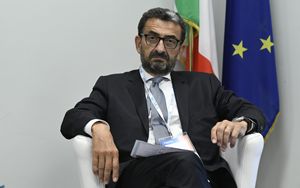(Finance) – “A relatively calm situation” while remaining “difficult”. Oil prices are currently up just $3 a barrel, after falling $10 in the last week. However, if the war were long and extended to the Persian Gulf, “there is no end to the possible increase” in energy prices. This is the analysis of president of Nomisma Energia, Davide Tabarelli. While the impact of the war in Israel on the energy market is not too great for now, the conflict could provide oil companies with a pretext to halt declines in gasoline prices at the pump. The extreme hypotheses of 150 dollars per barrel of crude oil and 2.5 euros per liter of petrol would be “still very unlikely but not impossible” possibilities. In the short term, in the next few days, a further drop in the price of petrol at the pump of at least 3-4 cents per liter was expected. “Let’s see tomorrow if it continues,” says the professor at the Alma Mater University of Bologna, who imagines that companies could halt the declines, also to avoid a subsequent upward rebound.
The worst case scenario would be one double shortage of energy supplies, from Russia and the Middle East which would put Europe in great difficulty and would cause energy prices to skyrocket and with them also inflation. An element of “alarm” in particular is the proximity to Algeria’s Hamas which is our main gas supplier, for almost 40% of our consumption, after we asked it for help to free us from dependence on Russia. “This says a lot about how we are stuck”, observes Tabarelli, according to whom he is a “economic crime” not to revive domestic oil and gas production. “The instability and weaknesses of these countries – he underlines Tabarelli – are also due to the fact that they export so much gas and oil that we pay dearly and they collect money which then goes to strengthen their autocracies and perhaps also to finance political forces which then have explosions of violence in an area on which we depend a lot”.
